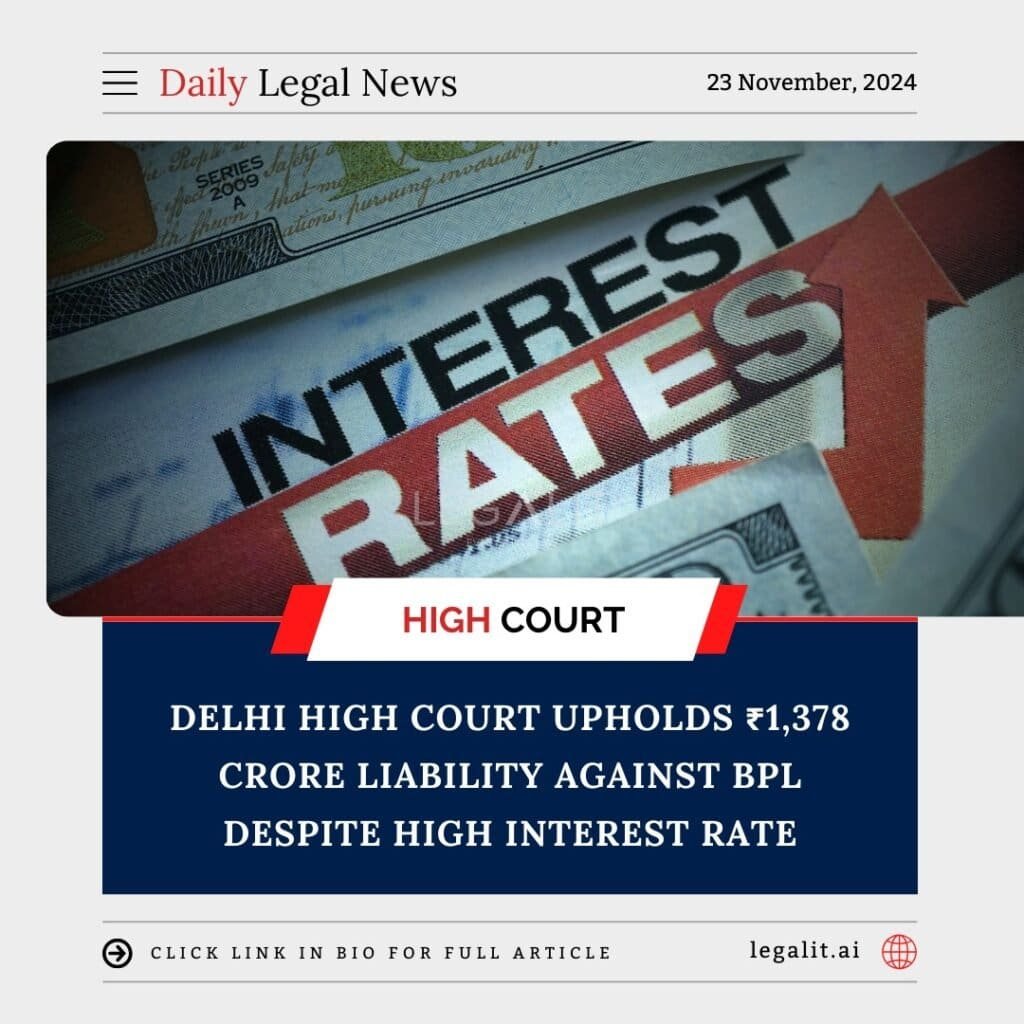
The Delhi High Court has upheld a ₹1,378 crore liability against BPL Limited in a case involving loan repayment, rejecting the company’s arguments against the “exorbitant” interest rate imposed. The court ruled that the terms of the agreement, including the interest rate, were contractually agreed upon and enforceable.
Background:
BPL Limited had entered into a loan agreement with its lenders, but disputes arose over the repayment terms, particularly the high rate of interest. The company challenged the liability, claiming that the interest rate was excessively burdensome and beyond reasonable limits. The lenders, however, argued that the terms were agreed upon by both parties at the time of contract execution.
Court’s Rationale:
The High Court emphasized that contractual obligations must be honored unless they violate the law or public policy. It noted that the parties had willingly agreed to the terms of the loan, including the interest rate, at the time of signing the agreement. The court held that revisiting these terms retrospectively would undermine the sanctity of contracts.
Existing Measures:
Indian courts have consistently upheld the enforceability of loan agreements unless the terms are found to be unconscionable or contrary to law. While there are legal provisions to address excessive interest rates under the Usurious Loans Act, 1918, and the Indian Contract Act, 1872, such claims require strong evidence.
Conclusion:
The Delhi High Court’s decision reinforces the principle that contractual terms, even if deemed harsh by one party later, are binding unless proven illegal or against public policy. The ruling underscores the importance of due diligence in financial agreements and highlights the judiciary’s stance on maintaining the integrity of contractual obligations.